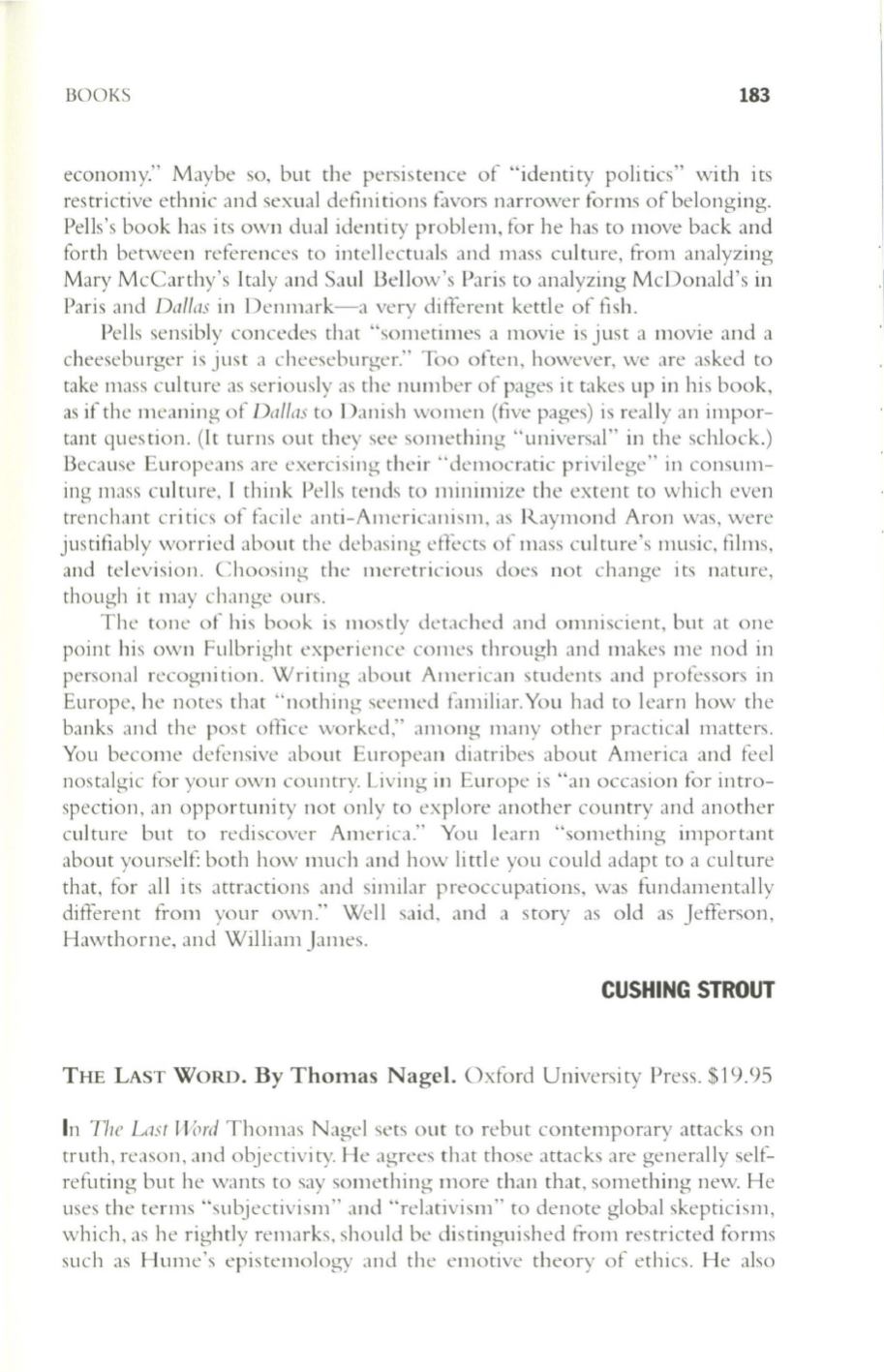
BOOKS
183
economy." Maybe so, but the persistence of " identity politics" with its
restrictive ethni c and sexual definitions favors narrower forms of belonging.
Pells's book has its own dual identity problem, for he has to move back and
forth between references to intellectuals and mass cu lture, fi·om analyzing
Mary McCarthy's Italy and Saul 13el low's Paris to analyzing McDonald's in
Paris and
0(11/(15
in Denmark-a very different kettle of fish.
Pells sensibly concedes that "sometimes a movie is just a movie and a
cheeseburger is just a cheeseburger." Too often, however, we are asked
to
take mass cu Iture as seriously as the number of pages it takes up in his book,
as if the meaning of
O(1I/(1S
to Danish women (five pages) is really an impor–
tant question. (It turns out they see something "universal" in the schlock.)
Because Europeans are exercising their "democratic privilege" in consum–
ing mass cu lture, I think Pells tends to minimize the extent to which even
trenchant critics of facile anti-Americ1I1ism, as Raymond Aron was, were
justifiably worried about the debasing effects of mass cuI ture's music, films,
and television. Choosing the meretricious does not change its nature,
though it may change ours.
The tone of his book is mos t1y detached and omniscient, but at one
point his own Fulbright experience comes through and makes me nod in
personal recognition. Writing about American students and professors in
Europe, he notes that "nothing seemed familiar.You had
to
learn how the
banks and the post office worked," among many other practical matters.
You become defensive about European diatribes about America and feel
nostalgic for your own country. Living in Europe is "an occasion for intro–
spection, an opportuni ty not only to exp lore another country and another
culture but to rediscover America." You learn "something important
about yourself: both how much and how little you could adapt to a culture
that, for all its attractions and similar preoccupations, was fundamentally
different from your own." Well said, and a story as old as Jefferson,
Hawthorne, and William James.
CUSHING STROUT
THE
LAST
WORD.
By
Thomas Nagel.
Oxford University Press. $19.95
In
The Last IMnd
Thomas Nagel sets out to rebut contemporary attacks on
truth, reason, and objectivity. He agrees that those attacks are generally self–
refuting but he wants to say someth ing more than that, something new. He
uses the terms "subjectivism" and "relativism" to denote global skepticism,
which, as he rightly remarks, should be distinguished from restricted forms
such as Hume's epistemology and the emotive theory of ethics. He also


